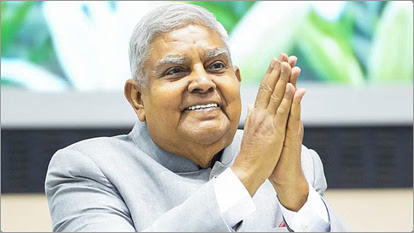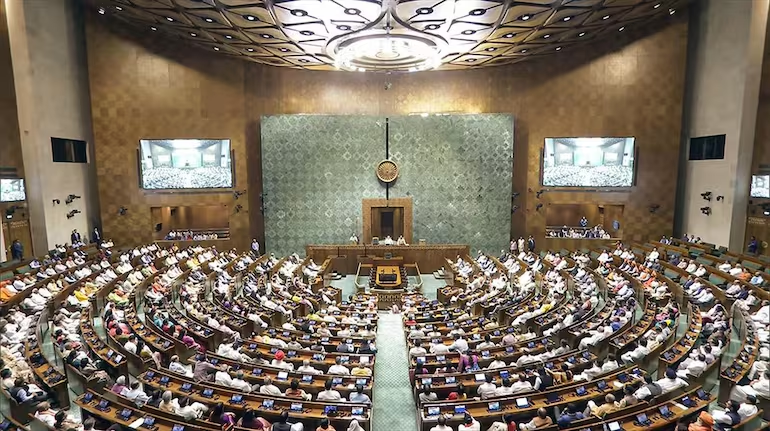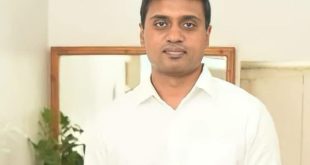Delhi: Chief Justice of India BR Gavai said on Tuesday that laws passed by Parliament are considered constitutional and unless there is a clear and serious problem, courts cannot interfere. He made this remark while hearing petitions against the Waqf (Waqf) Amendment Act. A bench of Supreme Court Chief Justice BR Gavai and Justice AG Masih was hearing on Tuesday, May 20, petitions challenging the Waqf Amendment Act, which was made a law last month.
Know what the court said in 10 points?
The Centre urged the Supreme Court to pass an interim order restricting the hearing on petitions challenging the validity of the Wakf (Amendment) Act to three issues, including the boards’ right to de-notify wakf properties declared by the court, user and deed. Senior advocates Kapil Sibal and Abhishek Singhvi, appearing for petitioners challenging the constitutionality of the Wakf (Amendment) Act, opposed the Centre’s submission, saying the crucial legislation cannot be heard in a piecemeal manner.
When Kapil Sibal reiterated that the law was aimed at confiscating wakf properties, Chief Justice Gavai responded, “There is a presumption of constitutionality in a law passed by Parliament. Unless a clear case is made out, courts cannot interfere, especially in the present scenario, we need not say anything more than that.” CJI BR Gavai said on Kapil Sibal’s argument- I went to the dargah, I also went to the church… everyone has this (donation money). On this Sibal said- Dargah is a different matter, I am talking about mosques, the law of 2025 is completely different from the old law. Offerings come to temples but not to mosques. This is Waqf by user, Babri Masjid was also like this.
CJI asked- Was registration required in the earlier law? Sibal said- Yes.. it was said that it will be registered. CJI asked- As an information, we are asking whether the provision for registration of Waqf properties under the old law was mandatory or was it just an instruction to do so? Kapil Sibal said- The word ‘Shall’ was used in the old Acts. CJI said- Registration cannot be made mandatory only by the use of the word ‘Shall’.
CJI said that we are asking whether it was mandatory or necessary to register the property declared as Waqf under the Acts of the relevant time? Kapil Sibal said that in all the amendments made in the Waqf Act after 1954, registration of Waqf property was mandatory.
The court asked – Was registration mandatory in Waqf by user also? To this Kapil Sibal said – Yes. Then the court said – So you are saying that before 1954, registration of Waqf by user was not necessary and after 1954 it became necessary. To this Sibal said – There is some confusion about this, it may be 1923.
The Chief Justice said – There is a lot of pressure, not only on us but also on you. The Supreme Court told Sibal that we will record your argument that registration was required under the old Act, but there was no provision of what would happen if it was not done, so nothing was going to happen if registration was not done.
After hearing Kapil Sibal’s arguments, CJI BR Gavai said- A temple in Khajuraho is under the protection of the Archaeological Department, yet people can go there and pray. On this, Sibal said- The new law says that if a property is ASI protected, then it cannot be a Waqf.
CJI asked- Does this take away your right to follow your religion? Can’t you go there and pray? Sibal said- Yes, this law says that the Waqf property is considered canceled. The Supreme Court again asked him- Does this also take away your right to follow religion?
CJI said- I visited an ASI protected temple; I saw that devotees can go there and pray, so does such a declaration take away your right to pray? Sibal- If you say that the Waqf recognition is canceled, then it means that the property is no longer a Waqf. I submit that this provision is violative of Article 25. It is taken on record of the Court that the petitioners have stated that this law violates Article 25 of the Constitution and citizens will be deprived of the right to continue their religious practices.
 Indian Thought Latest News & Views
Indian Thought Latest News & Views



